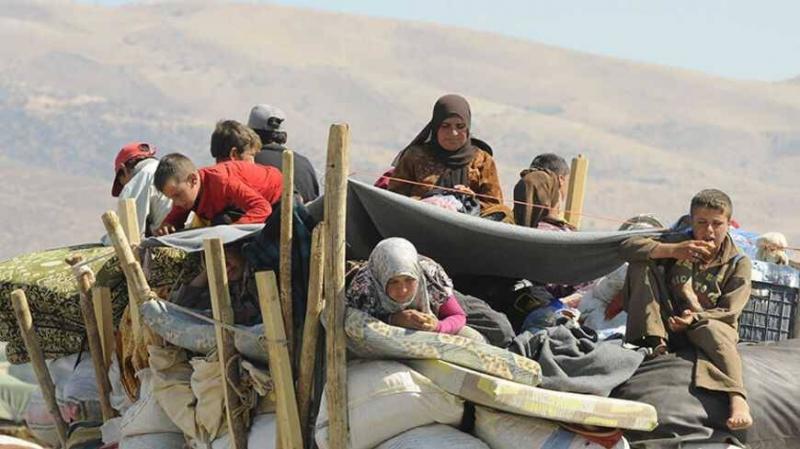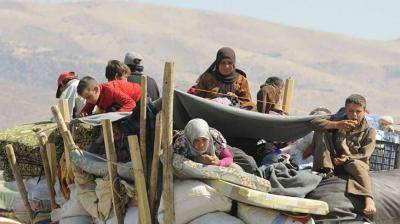The assassination of Pascal Sleiman, coordinator of the Jbeil district in the Lebanese Forces Party, by a car theft gang whose members are Syrian, as confirmed by investigations, alongside subsequent incidents in various areas and assaults on Syrians and party centers, has been met with rejection and criticism from various political forces. However, it has opened the door wide for discussing the issue of displacement as a matter that cannot be postponed. The crime leading to Sleiman's death coincided with the visit of the Cypriot president to Beirut, during which he expressed concern over illegal migration from Lebanon, as it uses his country, a member of the European Union, as a stepping stone to enter other European countries.
Sources revealed to Al-Anbaa newspaper that the visit of the Cypriot president resulted in an understanding between the Lebanese and Cypriot sides to propose solutions to address the crisis at the European Union, during the designated meeting for the region in May. The European Union's refusal to allow the return of displaced persons from Lebanon without ensuring security guarantees for them in their homeland has been a major obstacle to any Lebanese state plan for their return.
The sources further noted that the approach involves convincing the European Union to work on two tracks: the first involves reducing aid to the displaced in Lebanon and redirecting it to those returning to Syria. The second track includes international oversight of safe areas in Syria, especially since many displaced individuals leave Syria and return to Lebanon periodically, thus facing no security concerns in their homeland. If the lack of return is linked to international aid, as the displacement areas in Syria are economically devastated, then providing aid within Syria would help gradually secure a livelihood.
There is no doubt that the compliance of Lebanese officials with the will of the international community, particularly the European Union, has exacerbated the crisis and prevented any serious plan for the return of the displaced to their country. Nevertheless, the tone of some officials and politicians has begun to rise, calling for a challenge against international will and the establishment of a plan to address the displacement issue, which has become a sword hanging over both Lebanese and Syrians.
The Minister of Interior in the caretaker government, Bassam Mawlawi, confirmed that Lebanon can no longer bear the burden of hosting refugees, and that there are areas in Syria that have become safe. He pointed out that 35% of those in Lebanese prisons are Syrians, in addition to those against whom arrest warrants have been issued who have fled to Syrian territory.
Minister of Displaced Persons Issam Sharafeddin discussed a plan for the return of the displaced, for which mechanisms are being developed. He stated that the goal is to return one and a half million displaced persons to their homeland and stressed the need to communicate with the Syrian state concerning this file. He warned of the dangers posed by organized gangs and the presence of 20,000 fighters waiting for the signal to act, as well as reporting that weapons are hidden in refugee camps.
In this context, municipalities in major cities rushed to issue administrative memos regarding the organization of the legal registration of the displaced, and intensified efforts to prevent unlicensed motorbike riders from using the roads, according to Al-Anbaa newspaper.




